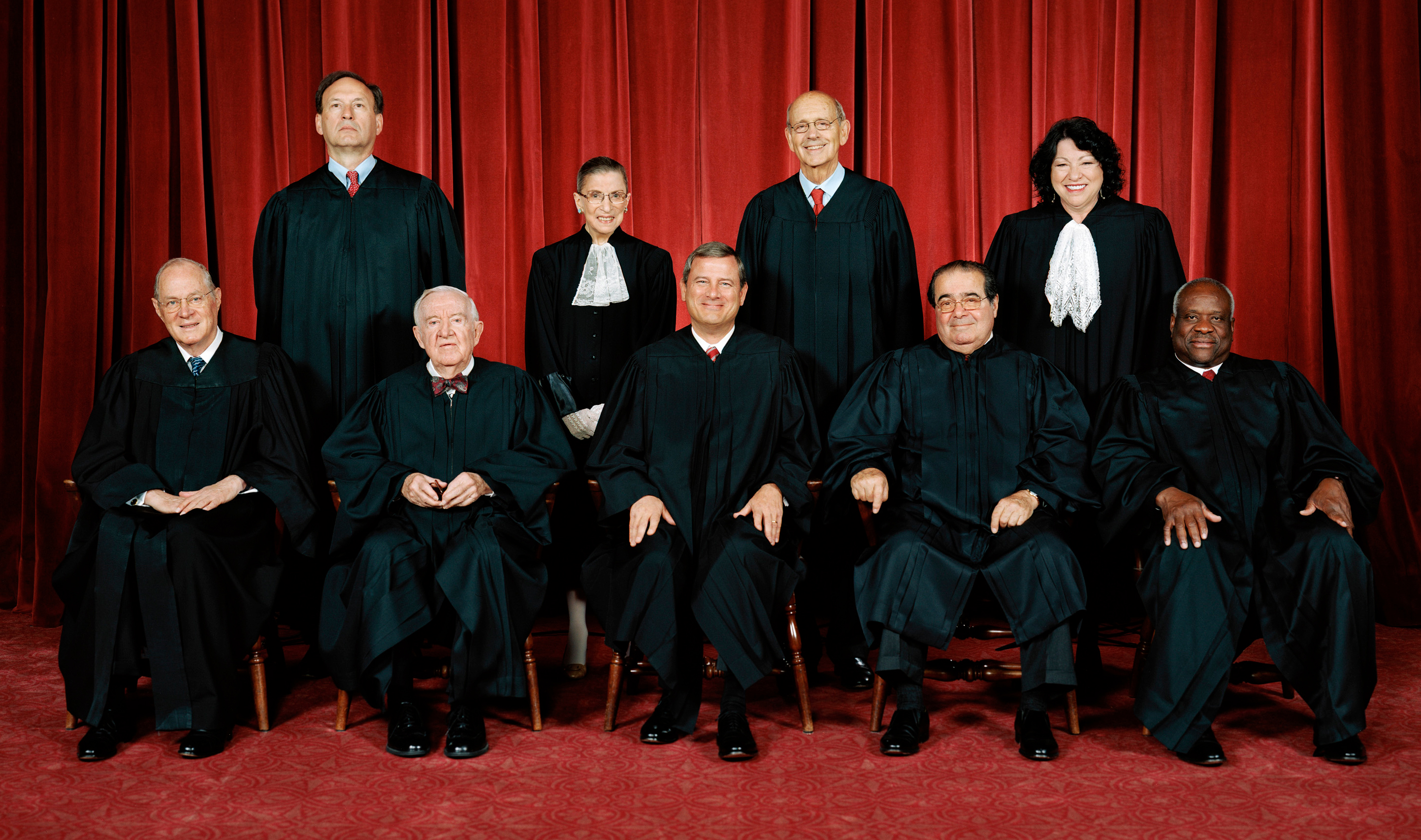 |
| Today's Supreme Court Ruling is a mixed bag . |
The Supreme Court gave a mixed bag this week
How we got to this point is that people had to put the Government to define a subject that had been for the most part was never the Government's business.Liberals have a long history of invading bedrooms across the United States and liberals usually applaud their intrusive practices. Striking down Prop 8 was inevitable because it violated rights of certain individuals . DOMA was Bill Clinton's puppy By a margin of 5-4, the Supreme Court has struck down the Defense of Marriage Act. Seventeen years after President Bill Clinton signed the Defense of Marriage Act, the gay civil rights movement will reach a pivotal milestone this week when the Supreme Court hears arguments in two momentous cases on same sex marriage. Prop. 8 was found unconstitutional by Northern California District Judge Vaughn Walker after a lengthy trial, and also by the Ninth Circuit Court of Appeals. The star legal team of David Boies and Ted Olson, who battled each other in Bush vs. Gore, are asking the Supreme Court to rule bans on same-sex marriages unconstitutional in all 50 states. "DOMA singles out a class of persons deemed by a State entitled to recognition and protection to enhance their own liberty,"the decision reads. If you can imagine a bunch of Supreme Court Justices sitting around, banging their gavels and going ‘No, no, no!’ then you have a visual of what it has been like for the last 24 hours in DC. Many are still puzzled about the Court’s overturn of a clause in the Civil Rights voting act, the act which gave people of color a right to vote without prejudice or institutional blockades targeted at harming and impeding their right to vote. .
The Supreme Court on Tuesday struck down a key part of the Voting Rights Act of 1965 — the map that determines which states must get federal permission before they change their voting laws. Civil rights activists called the decision devastating, and a dissenting justice said it amounted to the “demolition” of the law, widely considered the most important piece of civil rights legislation in American history.The act was signed by President Lyndon Johnson. Congress has renewed it four times, and the 2006 renewal won a huge majority in the House and passed the Senate 98-0. That renewal extended the law through 2031.The problem with the law is that it singled out southern states and prevented gerrymandering, only when it came to black districts. Since black folks, almost always vote democrat, it had the practice effect of increasing the number of democrats elected. Now southern states will be free to gerrymander and redraw district lines to weaken the democrat hold on certain districts, i.e. not because they are populated by blacks, but because they are overwhelmingly democrat. This is no different than what northern states controlled by democrats do in order to weaken the chances of republicans to get elected in districts. The NAACP statement . “This case comes on the heels of an election year in which our nation witnessed the greatest assault on voting rights since the Jim Crow era,” said Benjamin Todd Jealous, President and CEO of the NAACP. “Section 5 is the heart of the VRA. Shelby County v. Holder threatens to erode the essential protections that Section 5 provides for all Americans. “
NOTES AND COMMENTS:
ON Civil Rights: The Nation’s Ari Berman, who covered the hearing and has reported extensively on the battle for voting rights. Berman says overturning Section 5 of the Voting Rights Act "would open the floodgates to more voter suppression laws, more legal challenges, and it would make it difficult to enforce the voting rights laws that are on the books. ... It would be one of the most radical and consequential decisions made by the court in a very long time."-------------Civil rights activist Rev. William Owens, who is founder and president of the Coalition of African-American Pastors, said Tuesday there is no comparison between the civil rights movement and the gay community’s fight for same-sex marriage. -Owens said there is no comparing the gay community’s fight for marriage equality and the black community’s civil rights movement.
“They are not suffering what we suffered, and I sympathize with people who face discrimination. Every person should be treated with dignity and respect, but what they’re going through does not compare to what we went through,” Owens said.
Scalia's dissent is less a legal argument and more a plea for recognition that there are "good people on all sides." In it, he repeatedly played the role of victim, complaining that it is unfair that his opposition to gay marriage is no longer considered legitimate. "It is one thing for a society to elect change; it is another for a court of law to impose change by adjudging those who oppose it hostes humani generis, enemies of the human race," Scalia wrote, accusing the majority of "declaring anyone opposed to same-sex marriage an enemy of human decency ... In the majority’s telling, this story is black-and-white: Hate your neighbor or come along with us."

No comments:
Post a Comment